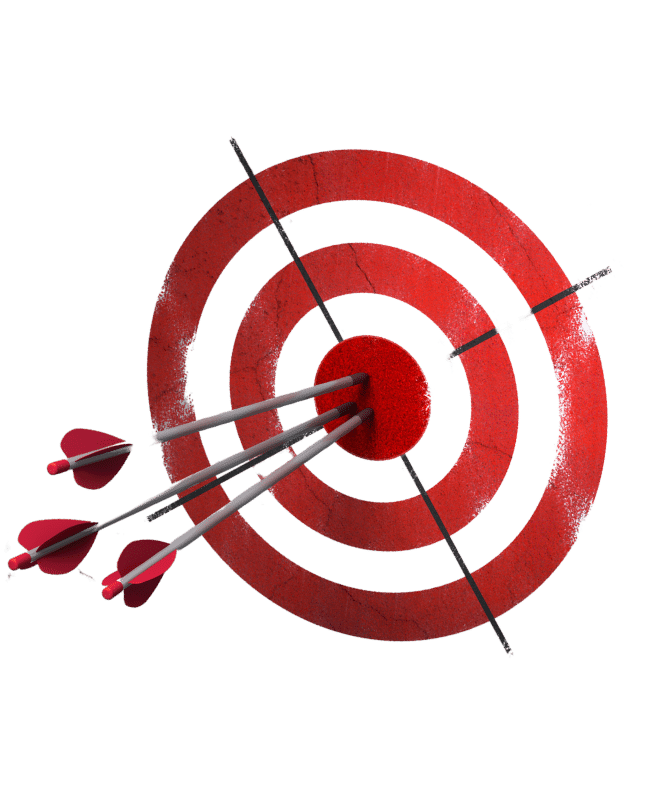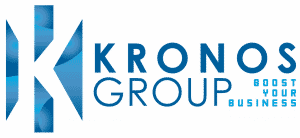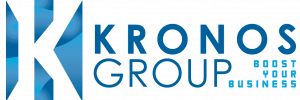Summary In the contemporary business environment, digital procurement is becoming increasingly popular and sought after by businesses around the world. The relationships …
Why there is an increased push towards machine learning in procurement
The pursuit of more speed, accuracy, and competitiveness in an increasingly competitive business environment is leading to a stronger push toward machine learning for procurement.
Effective procurement, which has an impact on factors like cost management, supply chain resilience, and strategy decisions, is becoming more important than ever in today’s dynamism and connected business landscape.
What is machine learning in procurement?
The way businesses use data to make informed decisions and drive operational effectiveness is revolutionised by machine learning, a subset of AI. Machine learning is a process of developing algorithms that allow computers to learn from data and increase their performance over time, employing no specific programming. There are many uses for this transformative technology in all sectors, and one area that is gaining significant momentum is procurement.
By enabling organisations to extract actionable information from vast amounts of data, optimise resource allocation, and enhance decision-making, machine learning offers a paradigm change. The challenges faced by traditional procurement methods include manual data analysis, a lack of visibility into the performance of suppliers, and difficulties in predicting demand correctly.
By using advanced algorithms to analyse historical data, look for patterns, and predict trends with unparalleled precision, machine learning addresses these pain points. Various areas, such as expenditure analysis, supplier management, demand forecasting, and contract administration, are covered by the use of ML in procurement processes.
We are going to explore the benefits of using machine learning in public procurement, look at why it has become more widespread, and discuss its challenges and considerations for implementation. Organisations can make a success of an increasingly competitive and data-centric business environment through their understanding of the potential of machine learning to revolutionise procurement practices.
What are the reasons behind the increased adoption of ML in procurement?
Data explosion and complexity
Procurement is generating enormous amounts of data from a variety of sources, such as purchase orders, invoices, supplier agreements, and transaction records in today’s digitised era. These vast, often unstructured data are difficult to analyse and derive meaningful insights from traditional methods. Using machine learning algorithms to analyse and interpret this data, procurement professionals can discover important patterns, trends, or correlations that will inform their decisions.
Cost optimisation and efficiency
Machine learning algorithms can be used to automate tasks that have been taking up a significant amount of time. To improve operational efficiency and reduce procurement costs, firms can significantly reduce manual effort and administrative costs by streamlining these processes. In addition, machine learning predictive analytics can detect cost savings opportunities, optimise supplier negotiations, and reduce maverick spending that would lead to significant benefits for the economy.
Enhanced supplier management
Management of supplier relationships is essential to the success of public contracts but it can be difficult to assess and monitor suppliers’ performance efficiently. Machine learning algorithms can analyse supplier data, evaluate performance metrics, anticipate behaviour by suppliers, assist organisations in identifying the most successful suppliers, detect potential risks, and address supply chain disruptions, enhancing the resilience and reliability of the entire supply chain.
Real-time decision support
To take advantage of market opportunities and mitigate risks, procurement decisions need to be made quickly and accurately. Machine learning allows organisations to respond quickly to changing market conditions, fluctuations in demand, and supply chain disruptions, by analysing procurement data in real-time. Procurement professionals can make informed decisions that support business agility and competitiveness by having access to accurate insight and forecasting information.
Strategic value creation
Machine learning enables procurement to evolve from a transactional function to a strategic business partner. Machine learning enables procurement specialists to focus on value-added activities such as supplier collaboration, innovation, and risk management by automating routine tasks and providing analytical capabilities. This shift allows procurement to play a more strategic role in driving business growth, enhancing competitive advantage, and contributing to organisational success.
Technological advancements and accessibility
As machine learning capabilities continue to mature and become increasingly user-friendly, advances in machine learning algorithms, cloud computing, and big data technologies have made ML more accessible and scalable for organisations of all sizes. Cloud-based machine learning platforms offer flexible deployment options and easy integration with existing procurement systems, making it easier to get started and speed up the adoption of acquiring processes and functions.
How are organisations turning to ML in procurement to streamline processes?
Organisations are increasingly leveraging machine learning in procurement to streamline processes, reduce manual intervention, and optimise resource utilisation, leading to significant cost savings.
Machine learning automates the procurement process, reducing the need for manual intervention and simplifying the processes. Machine learning algorithms can be used to manage tasks like data entry, invoice processing, and the generation of purchase orders that will eliminate errors and speed up procurement processes. In addition, by automating tasks, organisations can provide time for procurement professionals to devote to strategic activities such as supplier relationship management and tendering.
Machine learning contributes to the supplier management process tremendously by revealing supplier performance, risk-related factors, and collaboration opportunities via the acquired insights. Through machine learning algorithms analysing supplier data, the algorithms can distinguish the top-performing suppliers, assess their dependability and quality, and discover risks like supply chain disturbances. The creation of the database allows the procurement team to critically evaluate opportunities and form alliances with suppliers, resulting in robust relationships, greater resiliency, and better business outcomes.
Predictive analytics backed by the data collection capability of machine learning enable organisations to see the future of demand, market trends, and supply chain risks. Through the examination of the records and some external variables like market conditions and geopolitical events, the machine learning algorithms predict the demand trends for the future, balance the manufacturing levels and lessen the supply chain risks. Utilising such a proactive strategy empowers organisations to react rapidly in situations of increasing demand, heightened market conditions, or stockout and overstock situations, boosting supply chain efficiency.
In summary, the use of machine learning in purchasing management not only offers organisations a very efficient method but also presents them with a powerful tool to maximise processes and improve procurement efficiency as well as help them save costs in the currently competitive business world.

How machine learning algorithms are predicting future demand for better inventory management and strategic sourcing
Machine learning algorithms leverage historical sales data, market trends, seasonal patterns, and other relevant factors to forecast future demand with greater accuracy. Here’s how machine learning enables better inventory management and strategic sourcing decisions:
Data analysis
Machine learning algorithms analyse data over a vast period of time from historical sales data for pattern identification, trends, and seasonal fluctuations in demand. By understanding past stakeholder behaviour, demand and supply algorithms predict future demand levels more accurately.
Optimisation
By accurately predicting future demand, firms can optimise their inventory levels to meet customer needs while minimising excess stock and stockouts. Machine learning algorithms help determine the optimal reorder points, safety stock levels, and replenishment strategies for each product category.
Strategic sourcing
With insights into future demand trends and analysis, firms can make informed sourcing decisions. ML enables strategic sourcing by identifying suppliers that can meet anticipated demand levels, negotiating favourable pricing and terms, and diversifying the supplier base to mitigate risks.
Adaptive planning
Machine learning algorithms learn from new data inputs, allowing organisations to adapt their inventory management and sourcing strategies in real-time to market conditions. This adaptive planning approach enables agile responses to demand fluctuations, supply chain disruptions, and unforeseen events.
Level your business functions and capabilities with machine learning in procurement
Procurement consultants play a crucial role in helping businesses adapt to ever-changing market dynamics by providing expertise and equipping them with the necessary tools and processes. At Kronos Group, we recognise the invaluable contribution of procurement consultants and are committed to leveraging cutting-edge technology like GenAI to unlock new opportunities and deliver tangible value to our clients.
Through strategic integration of GenAI solutions, we empower businesses to optimise procurement processes, streamline operations, and achieve better results throughout the procurement lifecycle with developments towards digital maturity. Our partnership with Ivalua, a leading provider of procurement and supply chain management solutions, further enhances the impact of GenAI on our client organisations. By combining our expertise in procurement consulting with Ivalua’s advanced technology platform, we deliver comprehensive solutions that drive innovation, increase operational efficiency, and maximise return on investment.
Embracing the power of GenAI not only transforms procurement businesses but also yields strategic benefits that lead to long-term success and sustainability. With GenAI, companies gain the agility and insight needed to adapt to market changes, make informed decisions, and stay ahead of the competition. At Kronos Group, we are committed to helping our clients harness the full potential of GenAI to drive innovation, enhance efficiency, and achieve strategic objectives in procurement.
Fighting the effects of inflation with sourcing and procurement consultants
Stay up-to-date on the latest insights on procurement, finance, and project management.
Summary Strategic procurement has become a necessity in today’s business world and organisations try to remain competitive. Having the right procurement strategies …
Summary The world of consulting has been undergoing a massive transformation and management consulting jobs are experiencing the impacts of these changes. …
FAQ
To make use of machine learning, organisations can begin by identifying specific situations or pain points in their procurement processes that could be exploited. They might also explore the machine learning solutions offered by technology companies or develop in-house skills through training and retraining programs. To successfully implement and use machine learning technologies, procurement experts and data scientists must work in close cooperation.
The key information from contracts, such as the price terms, delivery schedules and termination clauses, can be extracted by natural language processing (NLP) algorithms. To ensure compliance with obligations and mitigate risk, this will enable organisations to perform contract analysis, extraction, and monitoring processes automatically. NLP machine learning algorithms are streamlining the contract management process, reducing manual effort, and improving accuracy.
For the production of reliable demand forecasts, machine learning algorithms can analyse past sales data, market trends, and any relevant factors. Organisations can improve the level of inventory and minimise stock depletions and overstock situations through better prediction of demand levels with greater precision, thereby improving efficiency throughout the supply chain. Accurate forecasting also allows procurement teams to negotiate better prices and terms with suppliers, which will result in cost savings and increased profitability.















